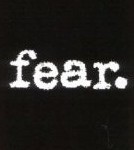Hearing & fearing – Ki Tetzei
 Though the law of the stubborn and rebellious son, set out in Deut. 21, was probably never implemented, we can still learn from it.
Though the law of the stubborn and rebellious son, set out in Deut. 21, was probably never implemented, we can still learn from it.
In particular, there is a lesson in the observation that if such a son is subjected to the harsh punishment specified in the Torah, “all Israel shall hear and fear” (Deut. 21:21).
There are several uses of the word “fear” in the Bible. Here it is fear in the sense of being afraid. If the people see that a serious crime has serious consequences, they will be deterred from committing any similar wrong.
That kind of fear is fear of consequences or fear of punishment.
The question may be asked, however, as to whether the frequent use of “fear” in relation to the Almighty has a similar meaning.
Does fear of God mean that we are frightened that God will punish us? Are we required to quake in dread of a stern, vindictive Divine taskmaster?
In ancient days there may have been some who understood fear in that way, but there is a long line of tradition that opts for a much less negative connotation of the word.
Abraham Joshua Heschel used to speak of “amazed, wondering awe”.
The Protestant Rudolf Otto, author of the great religious work, The Idea of the Holy, speaks of a “numinous” experience of the Divine, a strange, sublime moment which is so great that we almost recoil from it.
Fear of God is shorthand for an overwhelming, awe-inspiring encounter with the Almighty.
The Zohar says there are three kinds of fear.
The first is the dread felt by the person who is frightened that God will punish him or his children.
The second is the fear that some people have that they will forfeit the World to Come.
The third, which is genuine fear, is the feeling of human inadequacy in the light of the majesty of the Divine Creator.



